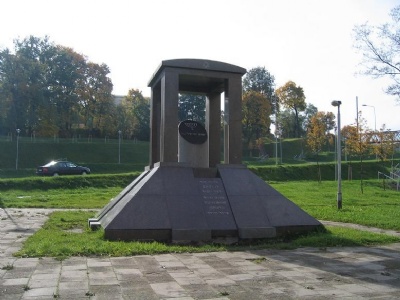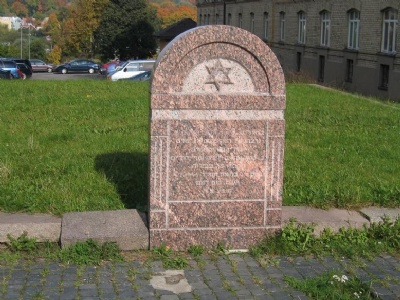HKP 562
This somewhat strange name for a Nazi labor camp was located in Vilnius and managed by the SS but was run by an engineering unit from the Wehrmacht called Heerskraftfahrpark 562, abbreviated HKP 562. The camp was set up in a haste in September 1943 in connection with the liquidation of ghetto 1 in Vilnius. The camp commandant, Major Karl Plagge, managed to issue a permit to transfer his workers to the HKP 562. In this way he saved the lives of Jews who had otherwise been murdered. He also managed to protect the approximately 1,000 Jews who worked in the factory from being surrendered to SS units for execution. Thanks to Plagge’s friendly attitude towards Jews, the Jews were treated well according to the circumstances prevailing in Vilnius. However, Plagge could not always prevent the SS from carrying out actions within the camp.
In March, 1944, SS units took about 250 children from the camp and murdered them. When Plagge and his staff were relocated in July 1944, he was not allowed to take the workers with him. Plagge, however, informed the workers in advance of the coming raid, which gave the workers the opportunity to escape or hide. About 500 Jews hid and thus escaped SS murder units. However, about 500 Jews rounded up and taken to Paneriai (west of Vilnius) where they were murdered. The SS searched the camp and nearby areas in search of the remaining 500 Jews. About 250 were found and murdered in the camp, about 250 Jews escaped detection and survived. Major Plagge was awarded a place in the garden of the righteous (none-Jews who, at the risk of their own life, helped Jews during the war) at Yad vashem in Jerusalem.
Current status: Demolished with monument (2009).
Address: Subaciaus gatve 47 – 49, Vilnius 11013.
Get there: Walk from central Vilnius.
Follow up in books: Gordon, Harry: The Shadow of Death: The Holocaust in Lithuania (2008).


There were thousands of camps like HKP 562 in occupied Europe but most of them were destroyed already during or shortly after the war and therefore few know about them. Add to that that the name does not create any emotions, it is rather reminiscent of a registration number on a car, TV model or something. In comparison to names such as Auschwitz, Buchenwald, Treblinka and others, it is difficult for the HKP 562 to enter the collective memory of the Holocaust, yet those who sat in the camp suffered as much as those who sat in other camps. Sadly, it is difficult not to say impossible to create an interest around a Nazi camp with a name consisting of a letter and number combination.